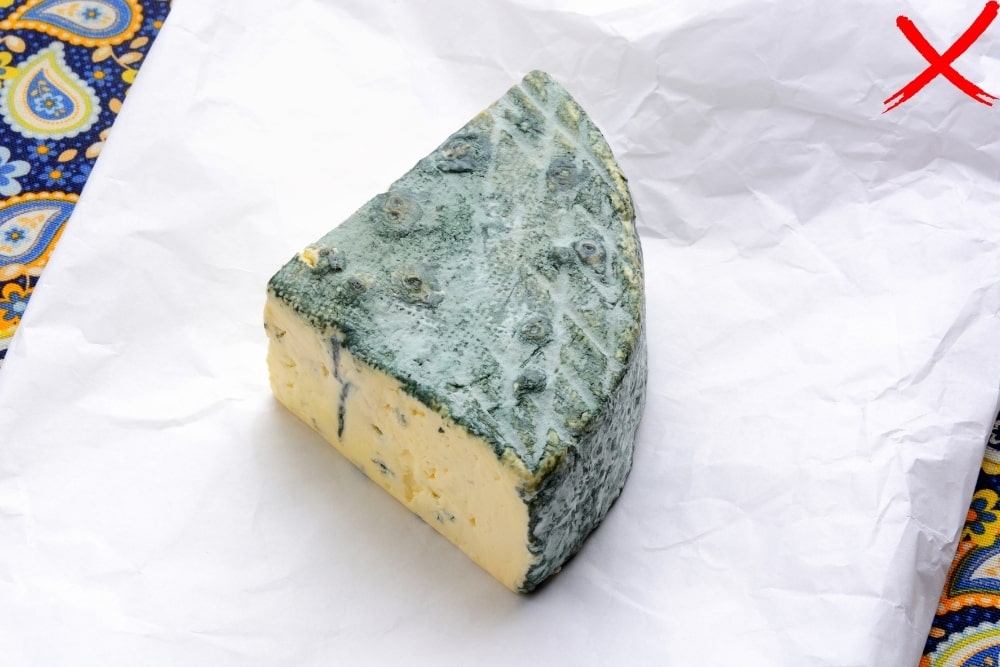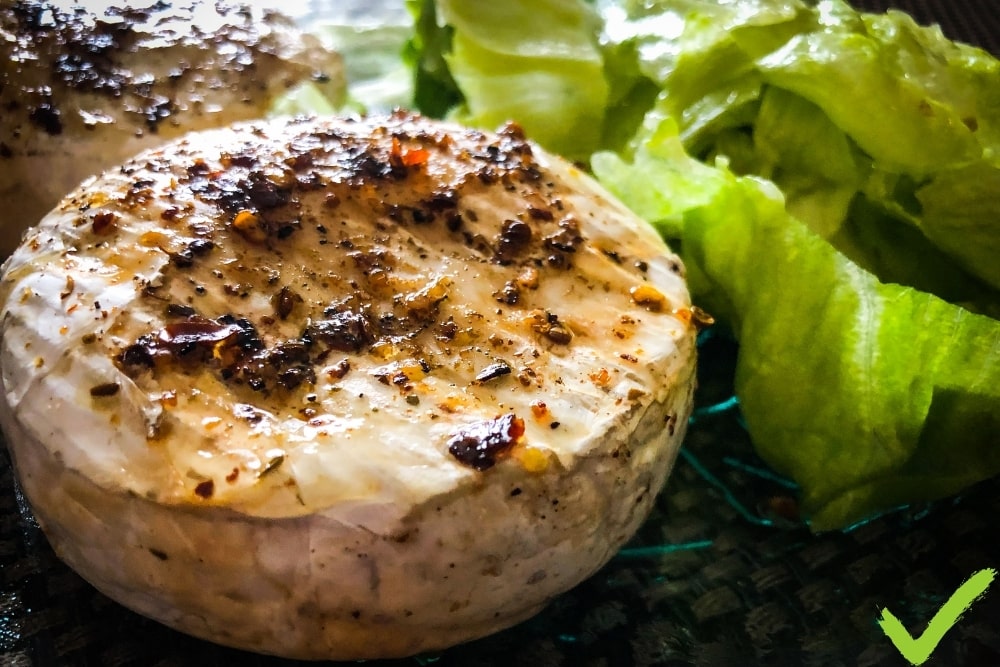The second that you become pregnant you are bombarded with a list of foods that you cannot eat. Some of the items on the list are a bit clear-cut, such as lunch meat that is not cooked. Others are not, such as goat’s cheese.
Some types of goat’s cheese are considered safe for both you and your baby. Then, there are other types that pregnant women should avoid.
It can make it difficult to tell whether goat’s cheese is safe for pregnant women, but this article will explain the differences so that you don’t accidentally eat something that is harmful to your growing baby.
In this article
Some Goat Cheese Is Unsafe For Pregnant Women
Pregnant women are at an increased risk of contracting a variety of illnesses, including food poisoning. When you’re not pregnant, this can result in digestive symptoms, such as diarrhea, and a fever.
However, when you are pregnant, it can result in the baby being sick, contracting meningitis, and can even kill the baby. This is why it’s so important to avoid certain types of goat cheese.
Avoid Raw, Unpasteurized Goat Milk
Goat cheese that is made from raw, unpasteurized goat milk is at an increased risk of having more bacteria in it than other milk. This is because a lot of contaminants are removed from the milk when the milk is pasteurized.
When that doesn’t happen, you’re at an increased risk for bacterial infections. These can cause significant harm to your unborn baby.
Don’t Eat Surface Ripened Goat’s Cheese When Pregnant
Surface ripened cheese is also commonly referred to as mold-ripened cheese. It’s more likely to be contaminated with Listeria, which can result in Listeriosis during your pregnancy. This is a very serious infection.
View in gallery
Men and women that have a weakened immune system, such as pregnant women, are already at an increased risk of contracting Listeriosis. This can result in a miscarriage in the first trimester. During later trimesters it can cause low birth weight, premature labor, and even infant death.
Types Of Goat’s Cheese You Can Eat While Pregnant
While there are a few types of cheese that are more likely to cause food poisoning, there are also a couple of types of goat’s cheese that are considered safe for pregnant women.
When you eat these, the chance of getting a foodborne illness is significantly lower than with other cheeses.
Goat Cheese Made From Pasteurized Milk
When milk undergoes this process it kills off a great deal of the bacteria, mold, and other things that are naturally found in milk.
Because of this, the chances of contracting an illness from this goat’s cheese while pregnant are very low. It’s important to note that you still should avoid soft-ripened goat’s cheese even if it is made from pasteurized goat’s milk.
Hard Goat’s Cheese Is Considered Safe To Eat While Pregnant
Hard cheese is exactly what it sounds like. You can typically identify whether goat’s cheese is classified as hard or soft by pressing on it with your finger.
You’ll be able to press into soft cheeses. Your finger will even leave an indent. That doesn’t happen when you press of hard goat’s cheese. Because hard goat’s cheese has a lower moisture level than soft goat’s cheese, it’s hard for bacteria to thrive.
It’s simply not a good environment for bacteria, which requires moisture. Hard goat’s cheese is considered safe regardless of whether pasteurized or unpasteurized milk is used to make it.
View in gallery
All Cooked Goat’s Cheese Is Safe To Eat
When cheeses reach a temperature of 165 degrees, the bacteria begin to die off. As long as this internal temperature is reached, you can trust that the dish is safe to eat. This not only kills off harmful bacteria, but it can also kill Listeria.
What Other Cheeses Should I Avoid While Pregnant?
Soft goat’s cheeses are not the only ones that you should be wary of when you’re pregnant. All mold-ripened soft cheeses pose a significant risk to both you and your baby.
These often contain bacteria in the beginning. Then, because the cheese has a high moisture content, the bacteria can continue to multiply.
It’s also not safe to eat blue-veined cheeses, such as Danish blue cheese. These are also made with mold, which contains Listeria. This is the primary concern with eating soft cheeses while pregnant.
What If I Already Ate Soft Goat’s Cheese?
If you came across this website because you already ate goat’s cheese that you weren’t supposed to (it’s almost impossible to always remember what you can’t eat while you’re pregnant) try not to stress.
Yes, this cheese can contain Listeria. However, you cannot go back in time and not eat it. Instead, accept that you already ate goat’s cheese while pregnant and be proactive about potential problems.
View in gallery
Contact Your Healthcare Provider
After you realize that you accidentally ate goat’s cheese while pregnant, contact your healthcare provider. Let them know when you ate it, and how much.
They can provide further guidance, such as how soon you should see symptoms if there is going to be a problem. They can also conduct a blood test to determine if you have Listeria.
Food Poisoning While Pregnant
If you do contract food poisoning while pregnant, it is important to maintain contact with your doctor. Drink plenty of fluids to help flush out your system.
This can make the illness significantly shorter than it would normally be, which means that your baby is less likely to suffer from problems associated with being sick while pregnant.
Listeriosis While Pregnant
Listeriosis is a bit different than other types of food poisoning. While you’ll see symptoms of food poisoning within a few days, you might not have symptoms of Listeriosis for a couple of months.
When you do have symptoms, they can be very mild. It will feel like you have a really bad cold or the flu. This is why it’s important to speak with a doctor and have a blood test to determine if you have Listeriosis.
View in gallery
Go To The Hospital If You’re Concerned
Because foodborne illnesses can cause miscarriage, contact your doctor or head to the hospital if you’re concerned. It doesn’t matter if stomach cramps are normal during the second trimester.
It’s a sign of a miscarriage and you need to be checked out by a doctor. This also applies to bleeding. They can prevent a miscarriage if you are so far along in your pregnancy, so it’s best to go to the hospital or contact your doctor to be on the safe side.
In Conclusion
Soft goat’s cheese and goat’s cheese made from unpasteurized milk should always be avoided unless it is cooked thoroughly.
Cooking it to an internal temperature of 165 degrees will kill harmful bacteria. Hard goat’s cheese is safe to eat. If you’ve already eaten goat’s cheese while pregnant, contact your doctor.






